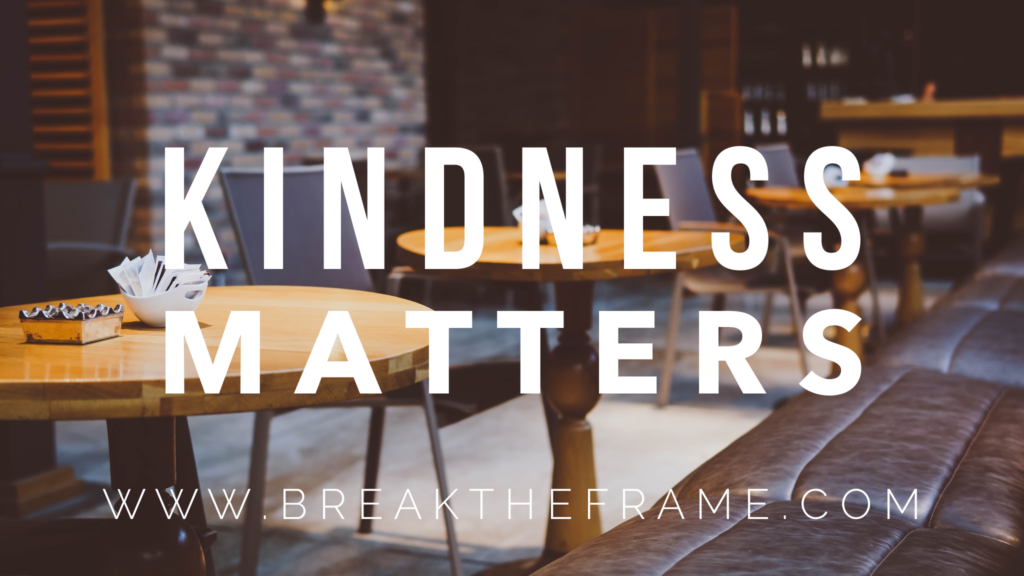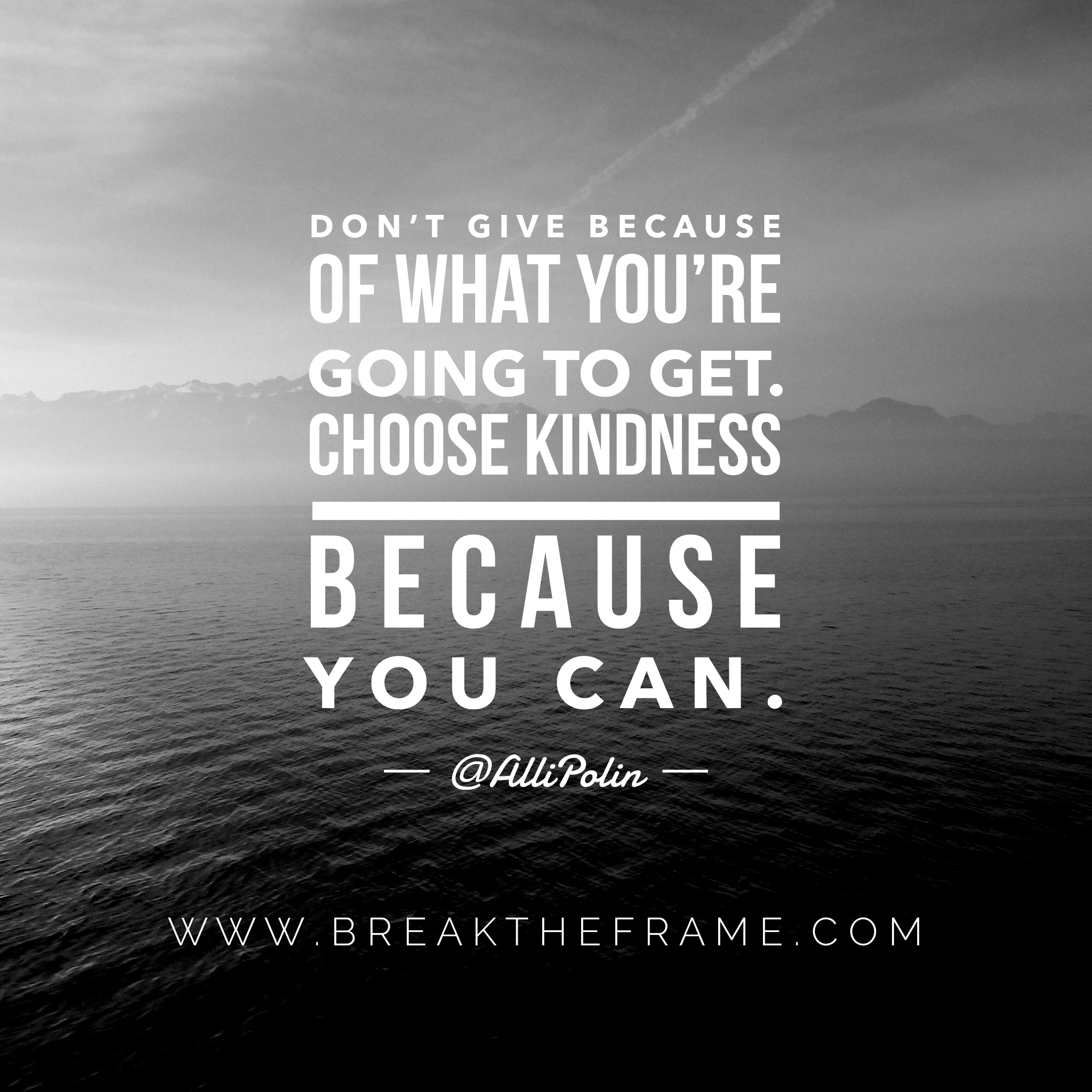
It’s a guilty pleasure. I’ll periodically take my laptop to a local cafe for breakfast and write. Sometimes I’ll order something decadent and other times stay in the healthy lane. No matter what, I come home with a full belly, and hopefully some progress on my manuscript.
The one distraction is when local women come through the cafe, approach each table, and try to sell their art. Usually, like most people who aren’t tourists, I give them a polite, yet firm, “no, thank you,” and they move on.
Last week, hot and heavy into my writing, not to mention scrambled eggs on toast with mushrooms, I noticed a woman making her rounds. When she got to me, she didn’t unroll a piece of art. Instead, she came to my side, leaned in close, and whispered, “I’m hungry.”
After a brief pause, I closed my laptop, put it in my bag, and said: “Let’s go get you some food.”
As we walked together towards the window where we place the order, I tried to understand what she wanted. She was Aboriginal, and English was not her first language. She also didn’t want to come all the way to the window with me but told me she’d wait at my table.
I bought her a sandwich and a cup of hot tea to-go and went back to my food. She was waiting for me there. As I sat across from her, it struck me that for all the times she’d walked through to sell art, she may not have taken a seat inside before.
We waited for her food and tried to make conversation. She spoke bits of my language, but I don’t understand a word of her’s. She talked to me about paints and painting, but I wasn’t sure what she wanted. I pointed to my laptop, she pointed to a painting and made lots of hand motions. We didn’t cross that divide successfully.
When her food arrived, she asked me to put the sugar in her tea. She also wanted salt on her food but didn’t know how to use a salt grinder, so she asked me to do it. Then, using more hand motions, she made it clear that she wanted to share my meal. We shared my mushrooms, but I declined buying more. Then, with the last few mushrooms well-salted and in her takeaway box, she got up and left.

Instead of pretending I didn’t hear her or understand what she wanted, I chose to do something. I decided to choose kindness.
Here’s what I learned.
- I admit that I wanted to be kind and buy a meal, not sit down for a meal with her. I realize now that I wanted to do a good deed, yet keep my distance. Sitting with her was just as important as paying. She got food but also treated with dignity.
- Gratitude for the things I have in my life sparked me to give. However, I’m now grateful for what I got from her. Before, I wouldn’t look twice when she came my way, now I see her for who she is – another human being.
- We all want connection. We crave it. It’s part of living.
- You don’t have to speak the same language to know what someone else is saying.
- We can do small things for people that make a difference anywhere and everywhere. We don’t have to wait for a big moment or a big giving opportunity.
- Even when we decline, we can do it with kindness and recognize that it’s a human making the request.
- In nearly eight years of living here, I’d never imagined we’d sit down together. You never know what will happen. Sometimes what we’re so sure is true is false.
- It’s ok to be uncomfortable. I was on edge during our meal together. Still, I didn’t cut it short, or leave, or suggest that she should take her food and go. Sometimes we learn the most about ourselves and others when we stay through the discomfort instead of pretending it doesn’t exist.
- One act of kindness won’t change the world, but what if we all committed to doing one kind thing a day? One thing that’s a little out of our norm. Imagine if just 10% of the world population chose one act of kindness daily that would equal 770 million acts of kindness.
- We are not friends now, and I didn’t change the world. However, I can choose kindness regardless of the outcome. We all can.



What a beautiful and caring act of kindness you displayed with that woman in the cafe. We not only have to be grateful for what we have in our lives but also be willing to share our humanity with others. I find myself being kinder to older people by holding doors and making small chat with them, especially having my mother nearby now. We are all in this world together.
Thanks Alli and will share your beautiful story and lessons! Happy Thanksgiving to you and your loving family!
We are all in this world together. That’s what it all boils down to. Thanks, Terri! Happy Thanksgiving!
Powerfully warm actions Alli and a story that is ripe for learning. Your list of ten lessons learned illuminate so much about the human condition, real emotions, and concerns while still pulsing the one true fact about humans — we all crave connection.
I will be pondering this list for awhile and thank you for sharing such a personal story.
Kate
I knew the experience was meaningful but needed the time to ponder the lessons and let them rise. Thanks, Kate!
What a powerful experience. This particularly resonated with me, “You don’t have to speak the same language to know what someone else is saying.” So true… when you take time to really listen. We found that in some of our travels in Cambodia… it’s amazing how much real connection can happen when you both are trying. I’d love to hear about the new book you’re working on!
Love that, Karin! We can make meaningful connections even when we don’t speak the same language. Not always easy but worth the effort to overcome the obstacle.
Couple of books. Going back and forth. Finally cranking up the effort. We’ll see where it goes!
“Unexpected” and “Unanticipated” may be two of several ingredients of some of the best kind of gratitude. When “thanks” is automatic, polite, expected and anticipated, it doesn’t have the same impact as the unexpected and unanticipated kind. Thanks to you for this thanks giving post, insightful, as always, helpful, useful and appreciated.
The kind of thanks we give without thinking about it definitely doesn’t land quite the same, does it? I have noticed that when I thank people, sincerely, sometimes they’re very surprised and tell me they’re just doing their job. That doesn’t mean they shouldn’t hear thank you for a job well done.
I appreciate your kind words, Gary. Thank you.
Alli